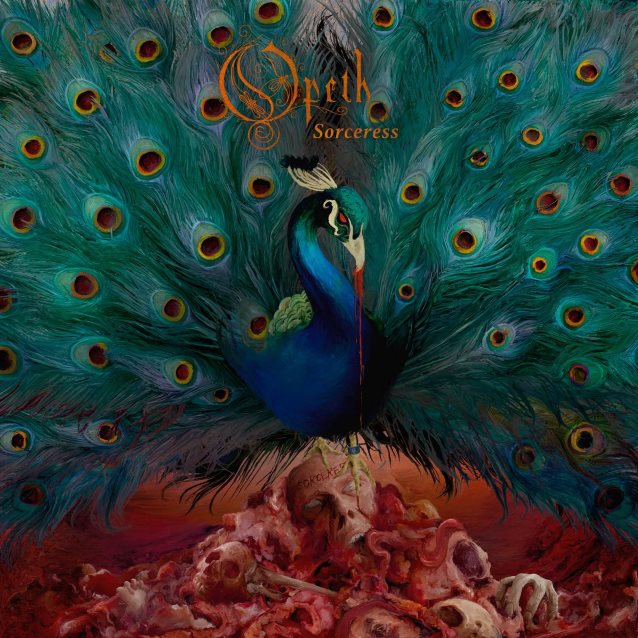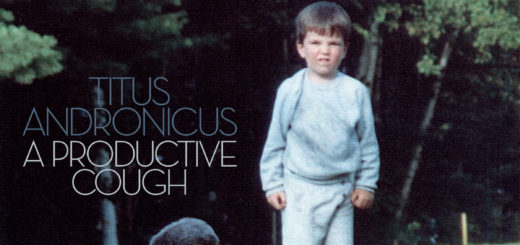SORCERESS by Opeth

Genre: Progressive Rock
Favorites: “The Wilde Flowers,” “Will O the Wisp,” “Sorceress 2,” “The Seventh Sojourn”
The word “progressive” seems to have lost all meaning. In politics it has become a slandering buzzword that is used interchangeably with liberal to demonize Democrats like Obama, Clinton, and Sanders, even though only one of them can really be called progressive. In music, the term should be applied to efforts that are really pushing the boundary of what people think rock and metal can do and say. However, like any genre that has been around for more than a year, it has developed stale blueprints that creatively-bankrupt bands co-opt in an attempt to give themselves credibility as boundary-pushing, when in fact, they’re just regurgitating what other progressives have done before. (You can read more about the boundaries and limitations of genres in our primer section.)
Opeth were one of those progressive acts that blazed the trail that other bands joined onto when they were lost. Even 25 years ago they were evolving death metal by adding elements of country, jazz, and folk to their dynamic and elongated compositions. Recently, the band has done away with the death growls and stuck with only clean singing, an act that galvanized long time fans. The mission statement for SORCERESS, their 12th album, was to create an album about love and its difficulties, though one of the things the band clearly doesn’t love is subtle album covers: The band’s goal of mixing brutality and beauty are clearly displayed by a peacock feasting on rotting flesh. The end result is overly long, intoxicating, and not at all what the band’s stated goals seem to be.
SORCERESS’s most impressive displays are when the band focuses on the beauty. The acoustic guitars and violins are lush, evocative, and elegant, and seem suited for interpretative dance or even giant, opulent palaces in the middle of the desert. They takes cues from folk, classical, and even Arabic music on “Seventh Sojourn,” and manage to be cinematic and epic, never seeming like a tacked on attempt by a metal band to be “emotional” and “deep.” The injections of a delicate harp and gentle organ and piano add to the serenity, and lead singer Mikael Åkerfeldt has a commanding yet tender tone that increases tenfold in the harmonies on “The Wilde Flowers” and “Sorceress 2.” He almost sounds like Serj Tankian if he quit System of a Down and became a preacher, and I mean that as a compliment.
While the beauty part is accounted for, the brutality is lacking. The guitar tones are trying to go for early Deep Purple, but end up feeling like neutered AC/DC or Queens of the Stone Age leftovers. The band either needed to go for a faster and dirtier guitar sound to contrast the other elements, or a more delicate one to complement them, but ended up somewhere in the middle, where neither juxtaposition nor supplementation happens. Both Mikael’s vocals and the drums lack rawness and hold the album back from the label of “metal.” As this is a progressive record, most of the songs are rather long, and solos seem haphazardly splattered throughout the tracks. They should be the musical climax of the song before sliding back into a quieter resolution, but on “Chrysallis” and “Strange Brew,” no epicness has been created that would warrant so many solos. Honestly, a folk record that cut out all the metal and rock entirely might be interesting from Opeth in the future.
Lead single “Sorceress” has its guitar and vocal melodies sync up to a mini-build that becomes tired and repetitive after only a few repetitions, and the over-the-top depictions of a terrible ex as “a charlatan” and “a harlot” seem hollow and arbitrarily picked out of a thesaurus. At other times, the album’s thesis about love is entirely forgotten on tracks such as “A Fleeting Glance” and its random references to the government and Mikael’s mother. However, “Chrysallis” paints a beautiful picture of personal growth and moving on from a regrettable path (A seed in barren soil / Might curl up into a coil / Flourish into something new), while “The Wilde Flowers” has an intense, urgent chorus. Mikael wails about “Blinding light as the flames grow higher / Searing skin on a funeral pyre” as he is punished for his sins, accepting it passionately since he is “tired of waiting” for his judgment. The spoken word passages in the opening and ending tracks compliment each other well and talk about a dangerous obsession that the protagonist eventually overcomes, as he learns the difference between love and lust. Themes of growth and acceptance of personal mistakes seem much stronger than ones about love, despite the band’s stated goal of focusing on the latter, much like how the SORCERESS’s music is at its best when it’s solely focusing on the beauty.
It’s really hard to pick out favorite tracks for the album; the category would be more appropriately titled favorite moments. Songs are so long and full of so many passages and ideas that they end up inconsistent, and every moment that is well-executed is followed by an easily discarded one. It’s a mess, but it’s also a rather beautiful mess that manages to hypnotize the listener into forgetting some of its flaws, pushing the boundaries of how elegant and divine progressive rock can be. No one is going to walk away from this album entirely pleased, but everyone will walk away from it glad that they at least listened to it.
Verdict: Recommend



